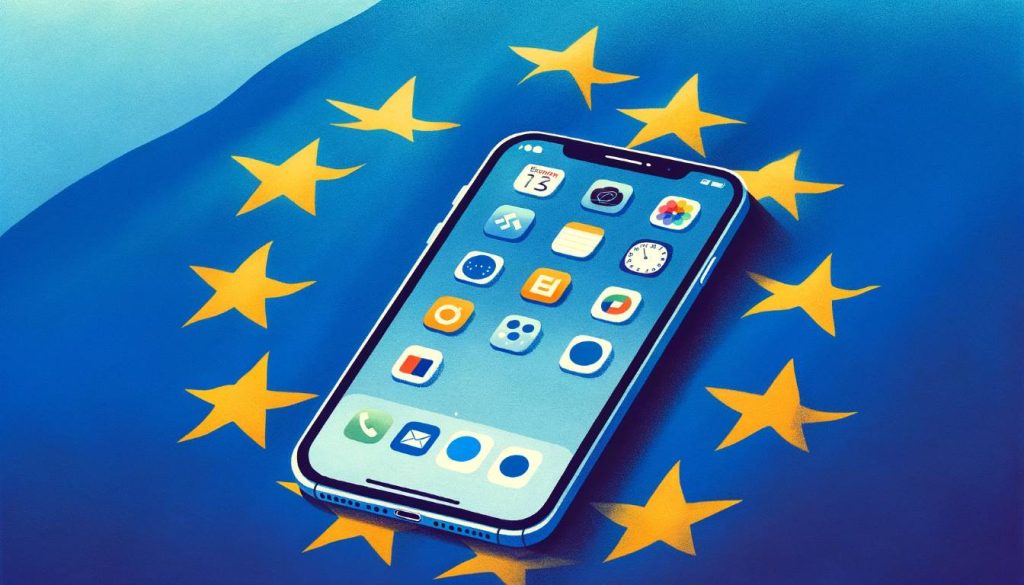Hey folks, have you heard the latest on what’s happening with your iPhone’s Home Screen in the EU? Well, buckle up because iOS 17.4 is shaking things up, and not everyone’s thrilled about it. The new update is ditching Home Screen web apps across European Union member states, and it’s all thanks to a piece of legislation known as the Digital Markets Act (DMA). But what does this mean for iPhone users and developers in the EU? Let’s dive into the nitty-gritty of this unwelcome change.
The Digital Markets Act: A Game Changer for iOS Users?
For those who love their web apps – those handy little icons that sit on your Home Screen and take you straight to your favorite sites without fuss – iOS 17.4 brings some pretty significant news. Due to requirements under the DMA, Apple has been prompted to remove support for these convenient shortcuts in the EU. It turns out, integrating alternative browser engines isn’t just a walk in the park; it involves dealing with complex security and privacy concerns that are giving Apple a serious headache.
Why Say Goodbye to Home Screen Web Apps?
The truth behind this decision is a bit more technical than most of us care to delve into over our morning coffee. But here’s the gist: traditionally, iOS supported these apps through its own WebKit engine, which meant they could offer similar security measures as native iOS applications. Now with alternative browser engines entering the scene, creating an entirely new architecture for integration would be necessary – a task Apple deems impractical amidst other DMA demands.
The Impact on Developers and Users
Let’s talk about who’s really feeling the pinch from this change. Developers who’ve poured time and resources into creating these web apps are left scratching their heads, wondering where they stand now. And users? While many might not even notice the shift, there’s a subset of folks who rely on these PWAs for a streamlined experience across devices – they’re certainly going to miss having that seamless access at their fingertips.
A Silver Lining or Just More Clouds?
Apple assures that EU users can continue accessing websites directly from their Home Screens via bookmarks with “minimal impact” on functionality. However, let’s face it: when you’ve tasted the convenience of web apps behaving like native ones – complete with notifications and local storage – bookmarks might feel like taking a step back into tech’s Stone Age.
The Rationale Behind Apple’s Decision
TechCrunch reports that Apple points to security risks associated with allowing third-party browser engines as part of its reasoning. They fear malicious web apps could potentially read data from others or access sensitive features like cameras or microphones without consent if proper isolation isn’t maintained.
A Tough Pill to Swallow?
Critics argue that Apple is clinging too tightly to its control over iOS app distribution, resulting in this drastic measure against web apps. Supporters may see logic in prioritizing user safety above all else but finding common ground seems challenging when such decisions disrupt user experience and developer plans.
A Glimmer of Hope for Future Updates?
All eyes are now on how this situation unfolds moving forward. Will Apple find a way to reintegrate Home Screen web app support while complying with DMA regulations? Or will this change become permanent within the EU landscape? Only time will tell.
Moving Forward After iOS 17.4
In light of current events, developers may need to rethink their strategies around app creation and distribution within Europe. Meanwhile, users may have to adjust expectations regarding what their iPhones can do straight from their Home Screens.
Conclusion: Navigating New Normals
In conclusion, while changes brought by iOS 17.4 may seem disruptive now, innovation has always been about adapting to new normals. As we bid farewell (for now) to Home Screen web apps in Europe due to DMA requirements forcing Apple’s hand, let us watch closely how Cupertino navigates these regulatory waters – balancing compliance with consumer needs – as we continue our digital journey together.
Frequently Asked Questions
What is the Digital Markets Act (DMA) and how does it affect iOS users?
The Digital Markets Act (DMA) is a piece of European Union legislation aimed at promoting fair competition and innovation among tech companies. For iOS users, the DMA’s requirements have led to Apple removing Home Screen web apps in the EU, as these apps would need to support alternative browser engines, posing security and privacy challenges.
Why are Home Screen web apps being removed from iPhones in the EU?
Home Screen web apps are being removed due to Apple’s concerns about integrating alternative browser engines on iOS devices. This integration could potentially introduce new security risks and complicate maintaining user privacy, which Apple finds impractical amidst other DMA compliance demands.
How will the removal of Home Screen web apps impact developers and users in the EU?
Developers who invested in creating these web apps face uncertainty about their future efforts, while some users may miss the convenience and functionality of having progressive web apps (PWAs) that operate similarly to native applications right from their Home Screens.
Is there an alternative way for EU iPhone users to access websites from their Home Screens after this update?
Yes, Apple suggests that users can still add bookmarks to their Home Screens for direct website access. Although this method lacks some features of web apps such as notifications and local storage, it provides a workaround with “minimal impact” on overall functionality.


